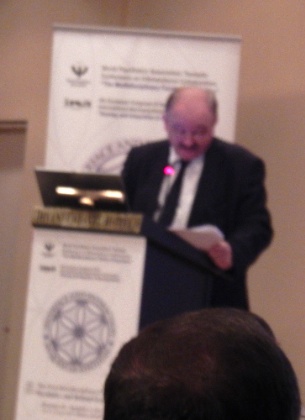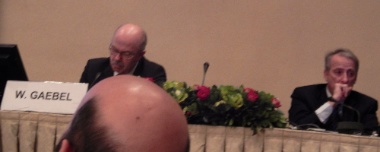First Interdisciplinary Congress “Psychiatry and Related Sciences” Chairs; W. Gaebel (Germany) M. Mavreas (Greece)
P.V Morozov (Russia) MD PHD Dr.SCi Professor, Department of Psychiatry, Faculty of Advanced Medical Studies, Moscow
Kandinsky-Clerambault Syndrome: Differences in understanding a mental automatism syndrome
Set of interrelated symptons - pseudohallucinations, delusions of persecutions, First dx aftr Epstein in 1927 Spitzer - should be removed DSM4 - pseudohallucinatios Kaplan Sadock - consider it erotomania but not
Kandisky was psychiatrist and patient pseudohallucinations - as opposed to real hallucinations F.W. Hagen 1868 - “pseudohallucinatios “ auditory Baillarger - internal intellectual voices No a variety of sensory but belongs to thought
Kandisky described ‘internal ear’, ‘internal vision’ -pseudohallucination - when patient saw or listened to something in their mind as opposed to externally Kallbaum 1886 Kandinsky Pseudohallucinations of hearing vision “internal talk’ “pseudohallucinations in torrents - influx that is oniric (oneriod) in nature, the fabulousnes and tension of a plot with a patients active participation”
This has been reported in epileptics as well. Brain imaging studies show that there are different areas of the brain involved in the experience of ‘pseudohallucinations’ as opposed to ‘hallucinations’
Dr. Morozov shared this presentation as it is important in Russia and France but less well addressed by the DSM. He encouraged us to consider this as still an important distinction.
(I commented that it was something we saw in addiction commonly and that interestingly it responded to treatment with antipsychotics suggesting an underlying brain disorder. )






No comments:
Post a Comment